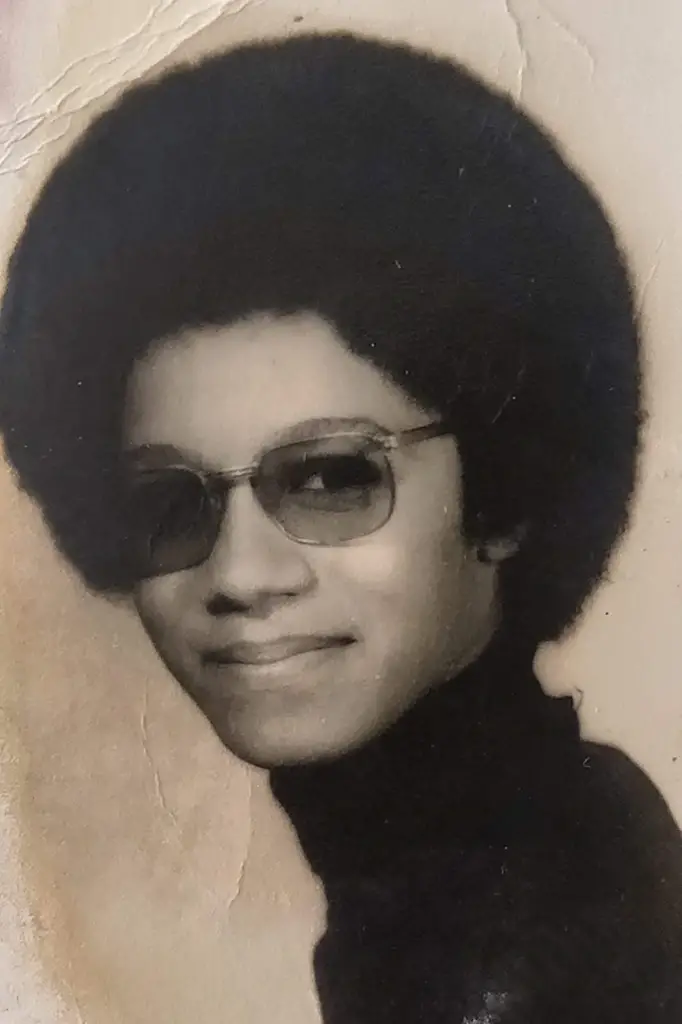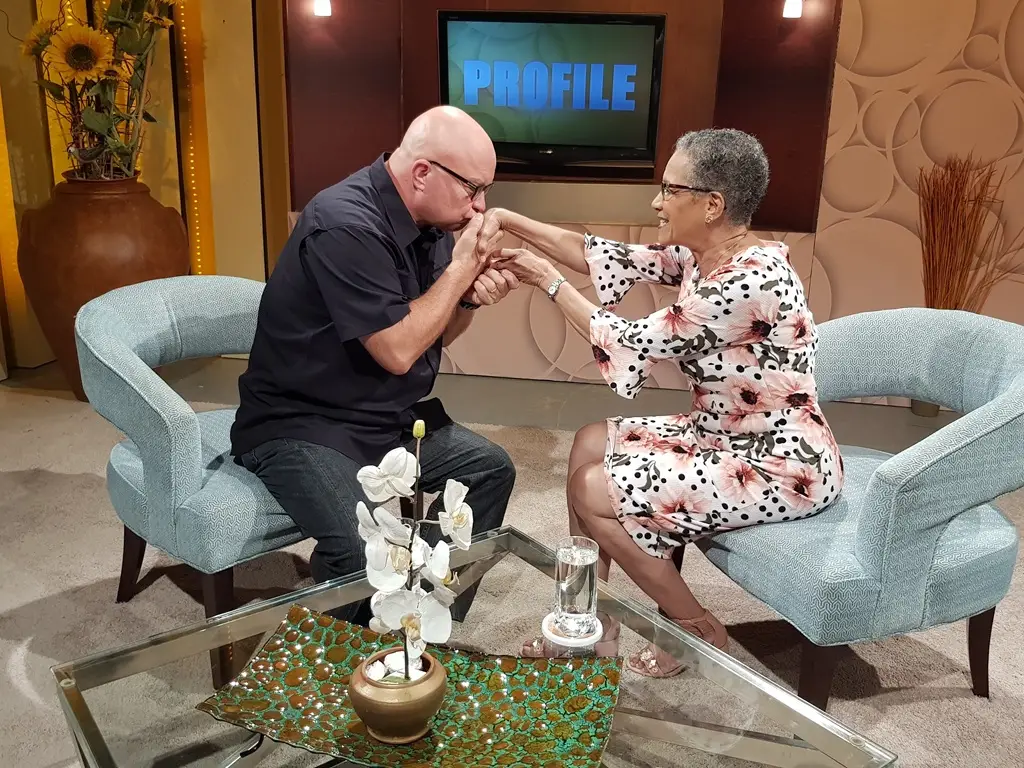
From shy girl to broadcasting icon, Fae Ellington marks 50 years in media
The woman behind one of the most easily recognisable voices in Jamaica, Fae Ellington celebrates 50 years in journalism on Monday.
Ellington, affectionately called ‘Auntie Fae’ by those closest to her, including the many student journalists she has taught at the Caribbean School of Media and Communication (CARIMAC) at the University of the West Indies, began her now legendary journey into media on Monday, September 16, 1974. She credits her longevity in the demanding profession to “always maintaining standards”.
During an interview with Observer Online on Monday, Ellington recounted some of the highlights of a glittering career that saw her blossom from a shy young girl (despite her early forays into theatre) into a household name in Jamaica and beyond.
Along the way, Ellington has chalked up many firsts like being the first woman to host her own early morning show.
While a 30-minute interview was not enough to detail the professional life of the woman who is used to being the one conducting the interviews like she did when she hosted TVJ’s Profile, the longest-running non-seasonal programme on local television, Ellington shared some of the highlights.
She credits the late Dennis Hall of Jamaica Broadcasting Corporation (JBC) fame and other stalwarts of Jamaican theatre and media with shaping her illustrious career.
After being trained at the School of Drama, Ellington started out working at Barclay’s Bank before joining Olive Lewin as a cultural and recreational officer in the nation’s prisons. She would spend a year doing rehabilitation work, including teaching drama.
After deciding that the programme was “not going the way” she liked, and after an incident involving female prisoners that she thought was “not handled smartly”, Ellington left that job.
“After about a week [at home] a say [to myself] mi nuh have nuh rich mother or anybody, mi haffi work,” she recalled.

A young Fae Ellington sporting an afro in 1977 while she was on a three-month training course at the BBC.
It was at this time that she made contact with the late actress Leonie Forbes who at the time was heading JBC Radio 2 FM. She had earlier met Forbes at the School of Drama having been taught by her.
“I wasn’t thinking of working on mic or in front of a camera, I was thinking of working behind the scenes because up until then I was very shy and lacking confidence,” Ellington said.
For those who may question how she could be shy, having been trained in theatre, Ellington explained that “when you’re doing your play you have other people on stage that you play-off”.
She was then contacted by Hall for an audition. At the time, Hall was chief announcer and news reader in addition to being the person who covered Parliament and outside broadcasts of national and state events at JBC. Hall was also the legendary quiz master for JBC’s, now TVJ’s, School’s Challenge Quiz.
Ellington admitted she was a bag of nerves during the interview. To be successful at the interview and get on air, the interviewee had to, among other things, be able to pronounce classical names, read news and weather reports.
“When we were finished with radio he (Hall) said ‘come now little one, let’s go across to TV’. I swear I dead. TV?,” Ellington recounted while laughing out loud. She shared that she had been inside the TV studio before with the Jamaican Folk Singers but an audition was a different story.
Having made an error while reading and mumbling something in frustration, Ellington recalled Hall saying to her, “so little one, if you’re on the air and you made an error, is that what you would do?”
Having come in contact with people like Hall, Forbes and Lewin, which she lists as a highlight of her career, Ellington said “I was blessed to be born at the right time”. She explained that she was in the presence of the right people as, while she never referred to them as mentors at the time, remarked that “I had people in theatre and in broadcasting whose example I emulated. They had the business of professionalism and high standards down pat”.
The veteran broadcaster said many of those who influenced her career straddled both broadcasting and theatre, an environment that would shape her into becoming adept at news reading, broadcasting and interviewing.
“People like Leonie Forbes, people like Easton Lee, Wycliffe Bennett, Bobby Gishays, I had those powerful, no-nonsense influences, which is perhaps why I turned out the way I did. Whether I was teaching or something else, although I can be funny, I’m a no-nonsense person when it comes on to time,” said Ellington.
“That is a highlight to have been in a place and a space where I had those excellent examples and they were not just guiding me, they were correcting me and some of the corrections sometimes jerk you, but you understood that they were meant for your benefit,” she added.
Another highpoint of her career was the in-house training provided by JBC which was referred to by journalists at the time as the ‘University of the Jamaica Broadcasting Corporation’. It was three months of intensive training before you went on air.
“And when I went on air it was not to do a programme, it was just to do a time signal …You do that for about a week or two and then you move from that to introduce a programme that is taped, that will follow,” Ellington recalled.
She said the on air talent was also taught how the different departments came together “to support those of us who’re on air”.
And, after training, you were constantly monitored. She gave credit to persons whom she described as very seasoned technical operators as they were called then, for helping her hone her on air skills. She singled out Algie Carby, who went on to work for the United Nations, as one. His approval, she said, “meant the world to me”.

Fae Ellington greets comedian Tony Hendriks on the set of Profile at TVJ studios.
Her hard work having paid off, by 1975 Ellington had her own programme, ‘The Bamboo Lounge, the Afternoon Delight’. The magazine programme featured music, features, interviews and giveaways.
“That was a highlight and highpoint for me because now you got your own programme,” she said.
There was another highlight in 1977 when JBC, in collaboration with the British Council, sent her to the British Broadcasting Corporatoin (BBC) in England for a three-month radio production course.
“That is why I enjoyed teaching the radio documentary module (at CARIMAC) because radio production is in my DNA,” she stated.
Ellington was still in her twenties when she was made chief announcer at JBC. She recalled that this did not go down well with some of the male announcers, including some who were more experienced and who were older than her.
On December 4, 1978, “a big highpoint”, Ellington became the first woman to do an early morning show in its entirety – “Morning Ride”.
Ellington was on staff for nine years at JBC. She said “there were people who have seen me reading news and hosting Morning Time with Lindy Delapenha and thought I was still on staff”. She shared that she had a close friendship with Delapenha. Having been born days apart in May, each year they went to lunch together with the blessing of Delapenha’s wife Joan.
By the early 1990s, JBC Radio, under the leadership of Owen James, launched the ‘World at 5’, the first evening news and current affairs programme in Jamaica. Ellington and Errol Lee were the presenters of the programme which aired at 5:00pm weekdays. Ellington said “getting to the point where you’re asked to anchor television news was a big thing while noting that Morning Time is now called Smile Jamaica Morning Time.
The broadcaster covered her first state funeral in August 1977, that of National Hero, Sir Alexander Bustamante, providing commentary on the outside of the Holy Trinity Cathedral. She has covered other state funerals for former Governor General Sir Howard Cooke and former prime ministers Hugh Shearer, Michael Manley and Edward Seaga.
For many years, Ellington’s was one of the voices that echoed in living rooms right across Jamaica as she announced the names or provided insights into the life of Jamaicans who are awarded national honours on National Heroes Day each year.
Her love for teaching resulted in a 33-year association with CARIMAC that started with the summer school in 1985.
Ellington recounted straddling two careers – theatre and broadcasting. She recalled performing at Manning’s School in Savanna-la-Mar, Westmoreland on a Sunday “and you come back to Kingston like at 1:00/2:00’o clock Monday morning”.
“If I go home I can’t wake [so] I sleep on the floor in the studio my brother, with my toothbrush and thing and I get up with enough time and brush mi teeth, wash mi face and get on air,” Ellington divulged. She would rely on “one of the ladies” to bring her a cup of tea at some point during the morning.
“That’s how serious I took my job,” she declared.
Ellington recounted another time around November 1980, which was shortly after the bloody general election held the previous month, when the driver did not arrive to pick her up for her early morning shift. She was living in Havendale, St Andrew at the time.
With the place still tense from the election violence, Ellington recalled that she left home in the dark and walked out on to Mannings Hill Road in search of transportation.
“And mi stan up dere inna di dark, mi nuh know wha mi a stan up fah enuh but mi stan up an mi a wait. An den mi hear a car a come down like mad. Mi wha go inna di shadow but mi say stan up. Guess who a drive di car and guess weh dem a go? Nuh Hugh Crosskill a go fi open fi do sports,” she said.
Ellington is encouraging young journalists to take the craft seriously and to strive for excellence. She also said that upon entering the profession, journalists should ensure that they “grow in it, with it and for it”.
She cited that for some, their association with the English language needs to improve so that they’re not frightened when they come across certain terms and words.
She also singled out some young journalists by name who she said are doing well, including some of her former students. But, she opined that the profession may lose them to greener pastures.























